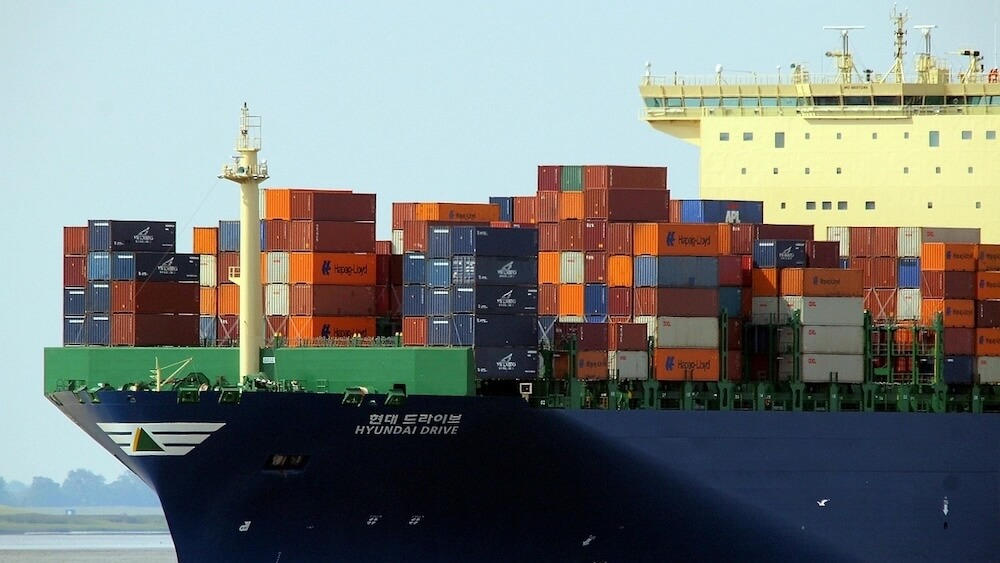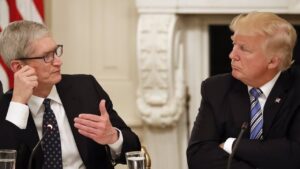


According to a new Exhibitions & Conferences Alliance (ECA) statement, the latest round of proposed tariffs will “increase costs for business and professional event organizers, exhibitors, and attendees alike.”When Convene spoke in December with Tommy Goodwin, vice president of Exhibitions & Conferences Alliance (ECA), tariffs imposed on U.S. trading partners didn’t top the list of concerns he anticipated the business events industry would face in the new U.S. administration. And in fact, a month later, a Jan. 22 Reuters article noted that Trump’s plan to impose higher tariffs on imported goods to help pay for tax cuts, while “an unprecedented shift,” was “likely to face opposition from many of his fellow Republicans in Congress.”
But that was then. On April 2, Trump announced his long-promised “reciprocal” tariffs, declaring a 10-percent baseline tax on imports from all countries, as well as higher rates for dozens of countries that have trade surpluses with the U.S.
On April 4, ECA issued a statement expressing the “significant concern within the U.S. business and professional events industry” the tariffs spark. “These tariffs will increase costs for business and professional event organizers, exhibitors, and attendees alike,” Goodwin said in the press release. “Moreover, these tariffs will particularly harm small businesses, which account for 99 percent of industry companies and 80 percent of all exhibitors.”
The events industry had been on track to employ 2.63 million Americans and drive $421.6 billion in spending nationwide in 2025, according to the release. “That’s why ECA opposes these new tariffs, which will negatively impact our collective ability to drive economic growth, support job creation, empower small businesses, and help solve our most urgent societal challenges.”
Meanwhile, the U.S. Tour Operators Association’s (USTOA) government affairs firm, Elevate, has predicted that the tariffs will have a negative short-term impact on the travel industry in terms of foreigners’ view of travel to the U.S. and have the potential to result in higher prices for hotels and airlines in the longer term. But Elevate also said that given similar tariff rates have not been implemented in nearly a century, “we cannot be certain about impacts at this time.”
That pervasive sense of uncertainty led to a LinkedIn Live Session on April 3 — “Navigating Uncertainty: The Impact of Tariffs and Trump on Events,” organized by micebook., a London, U.K.-based community platform for event professionals. Panelists, who included Tara Miller, director of global sales at Destination DC; Alan Love, regional vice president at Associated Luxury Hotels International (ALHI); and Gareth Baldwin, managing director at marketing agency CI Group, tackled the issue head-on. Some of the takeaways from that discussion:
- Clients are hesitant to commit, and contracting is taking much longer. At the same time, short-term bookings are up for smaller events, particularly in Europe.
- Companies are weighing whether to host meetings regionally, adopt hybrid formats, or lean more into domestic audiences.
- Event organizers are assessing visa/entry feasibility by country, especially for international conferences.
- There has already been a decline in inbound travel, with a 70-percent drop in flights to the U.S. from Canada.
- U.S.-based incentive programs are seeing cancellations or budget cuts, especially when traveling to a politically sensitive host destination.
The session, however, closed on a positive note, according to micebook.’s writeup: “Don’t underestimate the power of events to bridge divides — political, cultural, and geographic. While political disruption adds friction, the industry’s collective strength lies in its ability to adapt, collaborate, and find opportunity in adversity.”
Michelle Russell is editor in chief of Convene.








